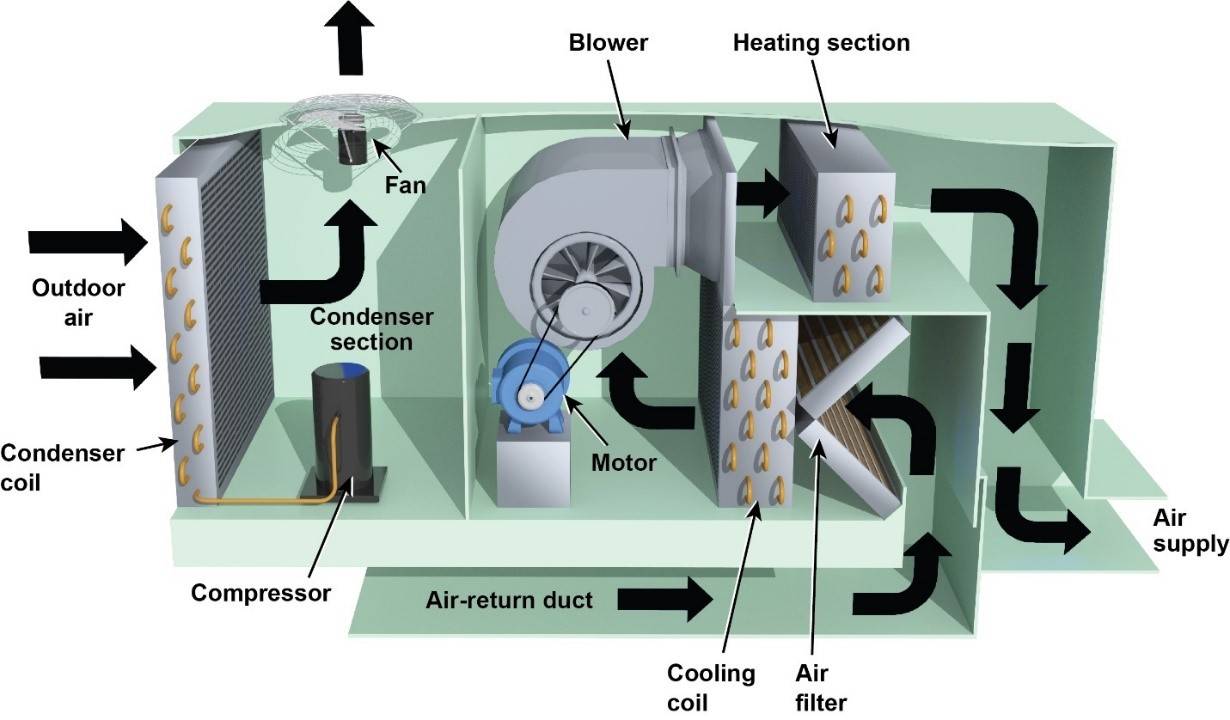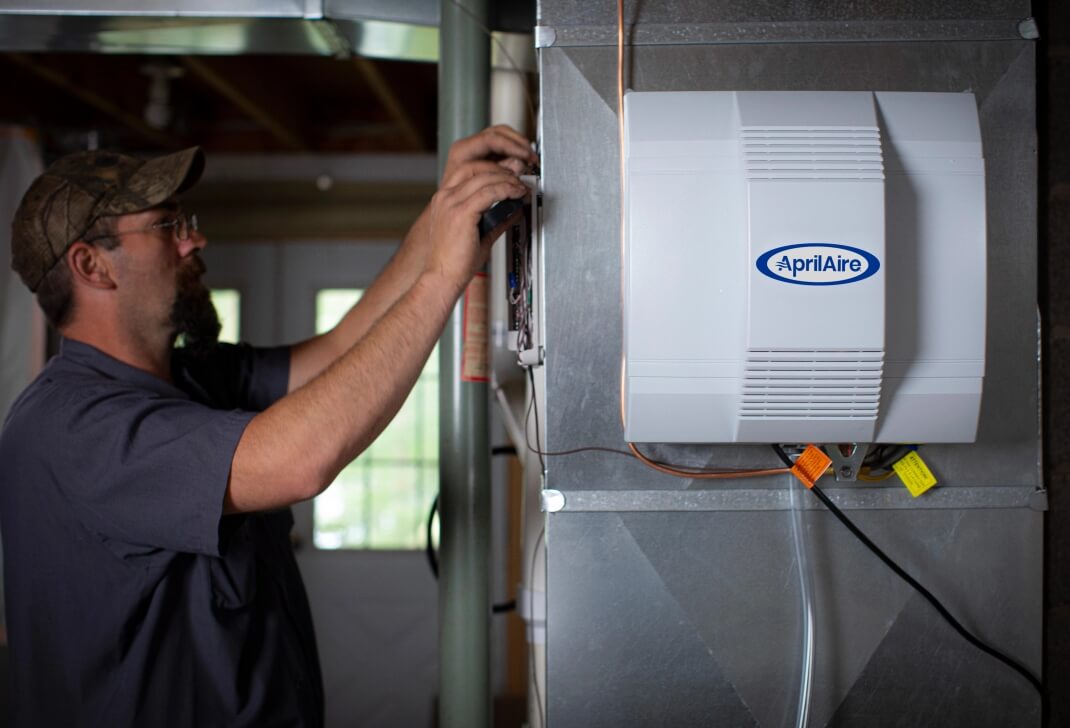An In-Depth Check Out A/c Services and Their Effect On Power Performance and Price Cost Savings
With technological developments like smart thermostats and high-efficiency elements, the capacity for optimizing system performance is large. As we explore the complex relationship between HVAC systems and functional costs, including the change towards ecologically pleasant choices, the concern occurs: just how can these approaches be efficiently carried out to make best use of both economic and ecological advantages?

Relevance of Heating And Cooling Solutions
cooling and heating systems are a crucial part of modern structures, playing a critical duty in preserving healthy and comfortable interior environments. These systems, including air, ventilation, and heating conditioning, are necessary for regulating temperature level, moisture, and air high quality, thereby making sure the wellness of residents. Reliable HVAC systems contribute dramatically to creating an ideal interior environment, which is vital for both property and business areas.
In commercial structures, HVAC systems are essential to supplying a safe and productive setting. By controlling interior environment problems, these systems assist avoid the growth of mold and the spread of airborne pollutants, thus securing the health and wellness of staff members and consumers. Furthermore, in domestic settings, heating and cooling systems enhance living problems by providing regular thermal convenience and improving indoor air high quality, which is essential for overall health.
In addition, the style and upkeep of heating and cooling systems have a straight influence on energy usage and operational expenses. Effectively designed and kept systems can dramatically decrease energy use, leading to reduced energy costs and a smaller carbon impact. The efficiency of these systems thus plays an essential function in promoting sustainability and energy preservation within buildings, highlighting their significance in the modern-day architectural landscape.
Developments in Heating And Cooling Technology
Technology in cooling and heating innovation is transforming the way buildings handle interior environments, introducing a new period of performance and control. Recent innovations have actually concentrated on maximizing energy consumption while improving customer convenience. One noteworthy growth is the integration of clever thermostats, which utilize expert system to discover occupancy patterns and change temperatures as necessary, minimizing unnecessary power usage.
Variable Cooling Agent Flow (VRF) systems represent one more significant jump onward. These systems enable for specific temperature level control in various areas of a structure, improving comfort and reducing energy waste. VRF technology is especially helpful for huge business rooms, providing adaptability and scalability.
Furthermore, the introduction of Internet of Things (IoT) devices has actually changed a/c systems right into interconnected networks capable of real-time data collection and evaluation. This connection makes it possible for predictive upkeep, guaranteeing systems operate at peak efficiency and minimizing unforeseen downtime.
Furthermore, developments in products and layout, such as making use of high-efficiency coils and compressors, have improved general system performance - Heating Contractor. The adoption of eco pleasant refrigerants additionally emphasizes the market's dedication to sustainability
These technical innovations are critical in decreasing functional costs and ecological effect, hvac service establishing brand-new requirements for constructing environment monitoring.
Cooling And Heating Upkeep and Efficiency
Guaranteeing optimum performance of cooling and heating systems prolongs beyond technical improvements; it also rests on reliable upkeep methods. Routine upkeep is important for sustaining effectiveness, reducing energy intake, and extending the life span of HVAC systems. The primary objective is to make certain that all components function at their peak capacity, consequently decreasing power wastage and maintaining constant interior comfort degrees.
Regular maintenance jobs, such as cleansing or changing air filters, checking cooling agent degrees, and evaluating ductwork for leaks, are essential for avoiding unneeded pressure on the system. Blocked or unclean filters can block air flow, causing the system to work more challenging and consume even more energy. Also, insufficient cooling agent levels can minimize cooling performance, bring about greater functional prices.
Furthermore, regular examinations by qualified experts can recognize potential concerns before they rise into costly repair work or system failings. These examinations often consist of inspecting electrical links, calibrating thermostats, and making sure the overall integrity of the HVAC system. By addressing minor troubles early, homeowners and services can prevent unexpected failures and improve power efficiency.
Affordable HVAC Solutions
For those looking to get one of the most out of their home heating, air, and ventilation conditioning systems without breaking the bank, discovering cost-efficient cooling and heating options can make a significant distinction. One immediate action is to buy programmable thermostats, which permit users to set certain temperature levels for different times of the day, maximizing power use and decreasing unneeded usage. By automating temperature changes, homeowners can accomplish significant financial savings on energy bills.
Regular upkeep is an additional critical element of affordable a/c monitoring. Making certain that filters are cleansed or changed routinely, ductwork is secured, and devices are serviced by professionals can stop expensive repairs and boost system long life. Precautionary maintenance not only keeps system effectiveness however also helps in avoiding unanticipated malfunctions that can bring about expensive emergency situation repair services.
Furthermore, retrofitting existing systems with energy-efficient components, such as variable rate motors or high-efficiency compressors, can be a sensible investment. These upgrades enhance functional efficiency, reduce power use, and can usually be applied at a fraction of the expense of a full system substitute.
Ecological Influence Reduction
Reducing the ecological Related Site influence of heating and cooling systems is crucial in today's search of sustainable living. Cooling and heating systems are substantial contributors to energy intake, making up virtually 40% of energy usage in industrial structures. This energy need commonly depends on nonrenewable fuel sources, causing greenhouse gas discharges and ecological deterioration. Transitioning to much more reliable systems, such as those using sustainable power sources, can considerably minimize these impacts.
Technological developments in cooling and heating style and procedure, including the assimilation of wise thermostats and energy-efficient warm pumps, are essential in lowering carbon impacts. These innovations enable maximized energy usage, minimizing wastage and improving total system performance. Furthermore, adopting regular maintenance methods ensures heating and cooling systems operate at peak performance, further stopping unneeded power intake.
Furthermore, making use of eco-friendly cooling agents is critical, as conventional refrigerants, like CFCs and HCFCs, have been terminated as a result of their ozone-depleting residential properties. Modern options, such as hydrofluoroolefins (HFOs), offer minimized environmental threats, aligning with worldwide environmental methods. By welcoming these sustainable techniques, a/c solutions can play a transformative role in minimizing environmental influences, advertising power efficiency, and fostering an extra sustainable future.
Verdict

Moreover, the layout and maintenance of A/c systems have a straight effect on power consumption and operational expenses. Regular upkeep is critical for maintaining performance, minimizing power intake, and expanding the life span of Cooling and heating systems. Cooling and heating systems are substantial contributors to energy consumption, accounting for almost 40% of energy usage in business structures. Furthermore, adopting routine upkeep methods ensures Heating and cooling systems run at peak efficiency, further cutting unneeded power consumption.
The change to eco pleasant Cooling and heating systems further reduces functional costs and advertises sustainability. (Heating Contractor)